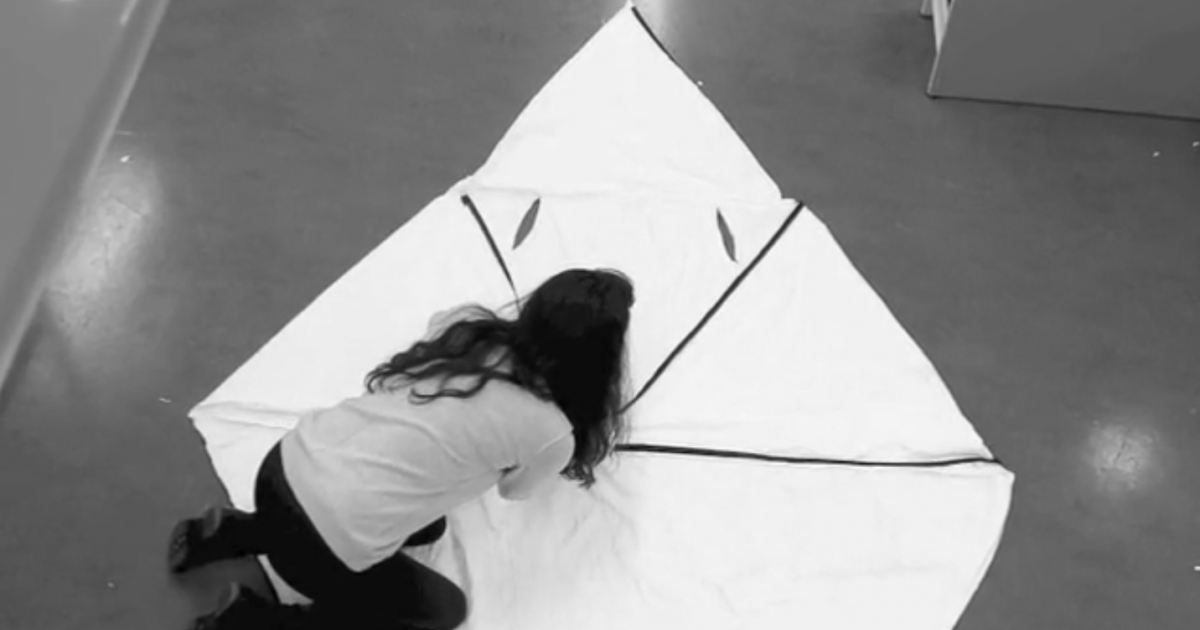Check Out This 'Wearable Shelter' For Syrian Refugees
wearable shelter
NEW DELHI: As the Syrian refugee crisis continues to grow, students at London’s Royal College of Art are doing their bit to help the four million (and counting) people displaced. A ‘wearable shelter’ serves as a prototype coat that transforms into a tent or sleeping bag, with students hoping that the trendy creation will offer aid agencies a cheap and sustainable solution to help refugees arriving in Europe.
The ‘wearable shelter’ is made from Tyvek, a material that is tough and durable and can withstand a lot of wear and tear. Additionally, the material is waterproof, serving as protection from rain but also is breathable, allowing condensation to escape. The ‘wearable shelter’ is lined with the insulating material Mylar, with students explaining that it retains the body heat of the person when transformed into a tent or sleeping bag.
The RCA team says that the garment is not meant to be a long term solution, but rather to give aid agencies a cost effective way to provide shelter to the large number of refugees. "The brief that I set our students to think about how a garment could convert into some kind of shelter for the approximate three-week period that many refugees are spending getting from points of arrival within the EU to processing centers. The idea was to really make sure that the materials used were sustainable, were affordable, could make it very easy and quick for us to mass produce the garment which means we could distribute it quickly and through lots of different agencies," explained project co-leader Dr. Harriet Harriss to The Global Post.
"We contacted a lot of agencies, and one of them was Medicines Sans Frontier which is really involved in helping people on site," said co-designer Ann Sophie Geay (as quoted in The Global Post). "The first thing we were thinking was how do you have, literally, almost all of your house - how can you wear your house and your personal items and personal belongings?"
The garment is still being constructed and is in the final stages, with the final prototype being worked on in China. The aim is to test it in the early summer and to have it ready for aid agencies to provide to refugees before temperatures drop.
This year, the UN said that more than four million Syrians have fled the country’s civil war, with many now despairing whether they will ever be able to return to their home country.
Syria's civil war, now in its fifth year, has damaged much of the country's infrastructure and killed more than 220,000 people. Of the four million displaced, a large number are children, with the UNICEF saying that millions of Syrian children face a "high risk" of disease due to the scarcity of clean water and the scorching summer heat.
"The situation is alarming, particularly for children who are susceptible to water borne diseases," said Hanaa Singer UNICEF's Representative in Syria. "Water has become even more scarce and unsafe, and poor hygiene conditions especially among the displaced communities are putting more children at severe risk."
The conflict has prompted a refugee crisis of an unprecedented scale. By mid-2014, Syrians accounted for nearly one in four of the 13 million refugees worldwide being assisted by the UN refugee agency UNHCR -- the highest figure since 1996. Half the Syrian population has been displaced since March 2011 when the conflict began.
Recently, a report by a group of 21 aid agencies including Oxfam and Save The Children concluded that 2014 has been the “worst year” for civilians in Syria. Further, the report accused the United Nations for failing to protect civilian refugees.
Reports quoted Andy Baker, Oxfam's program manager on Syria, saying, "The Security Council's words now ring hollow. The last year has seen little concrete action from parties to the conflict and governments with influence to tackle the spiralling humanitarian crisis in Syria. What good is a resolution to a mother whose house has been bombed and children are hungry if it is ignored and undermined? It is time for powerful governments to stop fuelling the conflict, significantly scale up humanitarian assistance to meet people's immediate needs and push the warring parties towards a political solution. "Russia, the US and other states have the political and diplomatic influence to make the changes set out in the resolution real - there is no more time to lose."
"The bitter reality is that the Security Council has failed to implement its resolutions," said Jan Egeland, secretary general of the Norwegian Refugee Council (as quoted in a BBC report). "Parties to the conflict have acted with impunity and ignored the Security Council's demands, civilians are not protected and their access to relief has not improved," he added.





